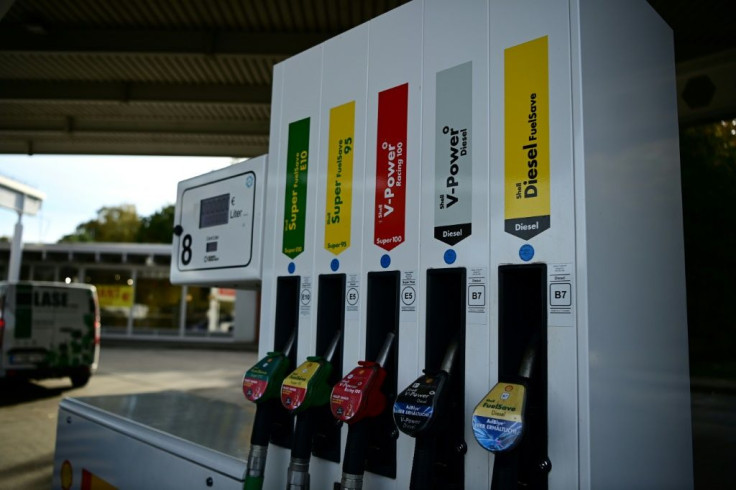Eurozone Economic Bounce Back Blotted By Record Inflation
Eurozone inflation surged to a record rate this month as energy prices jumped and supply chain woes bit, Eurostat said Friday, threatening growth just as economies nearly reached their pre-pandemic levels.
Year-on-year inflation hit 4.1 percent in October, more than double the European Central Bank's (ECB) target and tying the top level last seen in July 2008, as energy prices jumped 23.5 percent, the agency said.
Overall the eurozone economy was so far maintaining its steady recovery from Covid-19 restrictions, growing at 2.2 percent in the third quarter of the year, Eurostat said, beating expectations.
But analysts warned that global supply chain problems look set to put the brakes on growth just as the eurozone had nearly overcome its pandemic-induced downturn.
"The solid increase in eurozone GDP in the third quarter means that the recovery phase is almost complete in most of the eurozone," analysis firm Capital Economics said.
But it warned that "growth will be much slower in the final quarter as supply chain disruption, slowing global demand and some labour shortages hamper production."
The bottlenecks already appeared to be taking their toll on the eurozone's largest economy Germany, which grew by just 1.8 percent.
The increase was less than analysts had expected as German manufacturers wrestled with a lack of raw materials, including plastics, metals and paper.
But that contrasted with a strong performance from second-biggest economy, France, which expanded strongly at 3.0 percent, powered by a sharp increase in household spending and the reopening of key sectors.
Italy also beat expectations with 2.6 percent growth, while tourism-reliant Spain underperformed at 2.0 percent.
The third quarter increase brought the eurozone economy back to within half a percent of its pre-pandemic level, with France just 0.1 percent off and Germany 1.2 percent back.

Capital Economics forecast the eurozone growth rate would slow to around 0.5 percent in the final quarter of 2021.
It warned of "activity barely increasing at all between September and December, particularly in the manufacturing-dependent German economy."
Berlin on Wednesday lowered its forecast for economic growth in 2021 to 2.6 percent, from 3.5 percent previously.
A dark cloud on the horizon is rising coronavirus infection rates ahead of winter in parts of Europe that have seen some restrictions tightened.
Authorities are hoping that boosting the EU's already impressive vaccination levels can help stave off the tougher measures.
The rise in inflation meanwhile is set to pile more pressure on the ECB after it decided on Thursday to maintain its massive stimulus programme and ultra-low interest rates to sustain the eurozone's recovery.
"The euro area continues to recover strongly, although momentum is moderated to some extent," ECB President Christine Lagarde said.
She said inflation in the eurozone will "last longer than originally expected" but should decline next year as energy price rises and bottlenecks ease, and said that the ECB won't hike interest rates until the medium-term inflation outlook rises above its 2.0 percent target.
Currently, the ECB expects inflation to fall back to 1.5 percent by 2023.
Berenberg Bank economist Holger Schmieding agreed with that forecast, saying it will likely drop back to that level by the end of next year.
"We thus look for the ECB to start raising rates in late 2023 rather than in 2022 already," Schmieding said.
Some market players have been pencilling in a hike as soon as late next year amid worries that inflation will not slow much as supply chain disruptions continue.
But backing up the belief that inflation will wane next year, Eurostat said the core inflation rate which excludes volatile energy prices only ticked up slightly from 1.9 percent to 2.1 percent.
© Copyright AFP 2024. All rights reserved.











